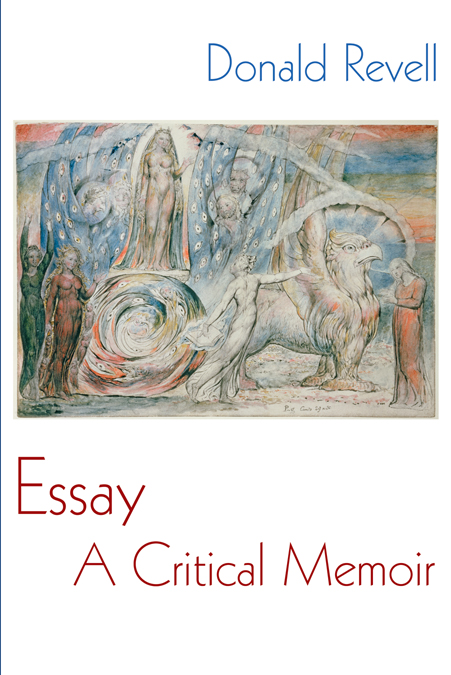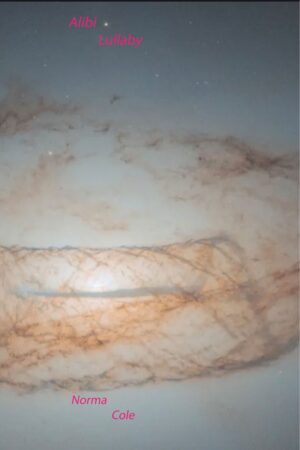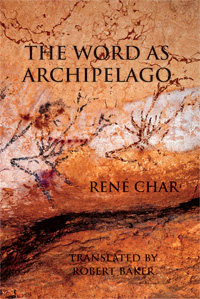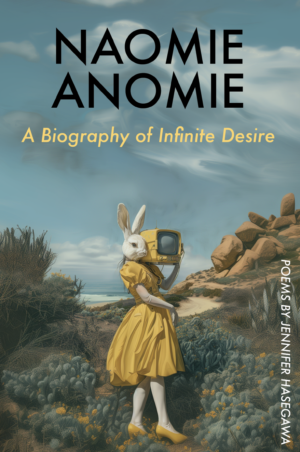Description
Essay: A Critical Memoir is an experiment of the old school and of revived delight in the pleasures of close reading. What if all the poems are true? What if the allegories of a man or woman’s life are in every way, and always, the actual shape of that life? To read is to find oneself again and again at the center of a pageant. To write is to call the pageant home. Essay is a memoir of Dante and Beatrice in New York circa 1968 and of an anti-war movement in something very much like Paradise.
Revell is a writer of singular talent and ambition…he takes the reader to unfamiliar and strange places and, in the process, he creates some of the most beautiful poetry in our language.
Harvard Review
No poet so innovative now is more accessible, and no poet half so accessible in recent years has made the language so new.
Publishers Weekly
It takes guts to write more poems about peace, war, God and children, but Revell’s are so fresh, it’s as if he’s the first person ever to do it.
TIME Magazine
About the Author
Reviews
Excerpt
Donald Revell is Professor of English & Graduate Studies Director at UNLV. Tantivy is his twelfth poetry collection, published by Alice James. Donald Revell’s previous translations include The Illuminations by Arthur Rimbaud, and A Season in Hell by Arthur Rimbaud, both of which were published by Omnidawn. A Season in Hell won the PSA translation award. His books of essays include Invisible Green: Selected Prose, published by Omnidawn. He serves as poetry editor of Colorado Review. Revell lives in the desert south of Las Vegas with his wife, poet Claudia Keelan, and their children Benjamin Brecht and Lucie Ming.
A brief interview with Donald Revell
(conducted by Rusty Morrison)
What a delight it is to be publishing your prose again. Omnidawn has been graced by your translations, and the prizes and attention that they have deservedly received. But this is only the second book of your prose that we have had the opportunity to publish. I recall that you and I actually got to know each other because I brazenly wrote to you to introduce Omnidawn to you, and to ask if Omnidawn might publish a prose collection of yours, since I’d been reading the “Invisible Green” essays published serially in APR and I was stunned at their virtuosity. It was my unbelievable good fortune that you allowed Omnidawn to publish Invisible Green, which includes not only those essays at its core but also a garland of critical and innovatively insight-driven prose. As I began to read and become enthralled by Essay: A Critical Memoir, I felt that its approach to literature and language—its lucid yet often entirely disarming lyric muscularity, which so often affords nearly miraculous leaps of insight—was in some sense Invisible Green re-birthed and carried farther. Of course, as you say in Essay
and
You remind me, in these quotes, that it is at my peril that I would try to summarize any of the “pageant” of this prose work. As you say
So, I will not ask you to summarize the work of Essay: A Critical Memoir, or to put this pageant at the distance of analysis, but perhaps you might speak to us about your choices when writing this work—which is and isn’t criticism, memoir, measure of your literary heritage, and lyric spreading its wings, and in so doing enlarging the sky into which a reader may ascend.
We come to a pageant in our proper persons, entirely. We do not come, however, with any of the burden and dissembling of our personalities in tow. For me, Essay began, a few years back, in an amazed re-reading of Eliot’s “Tradition and the Individual Talent.” At last, I fully realized how very personal that essay is in its ultimate rejection of personality. For anyone who devotes his or her life to poetry, the canons must, over a lifetime, become intensely personal—an objective entity made by numberless subjective, sometimes anguished, sometimes rapturous choices. And still, the canons remain purely, coolly canonical. So I began to see that I could understand my life through the pageants of the canon into which my life was given—given by me, and ever afterwards given again in any moment or hour of close reading.
I am thinking now of your poems and your prose, and how they might be akin or aslant in their conception and arrival for you?
Both poems and prose come first to me as a cadence, pure and simple. Afterwards, the distinction is of purpose. My poems seek to know. My prose writing hopes to account for such knowledge as I find.
I am fascinated by the deftly offered glimpses of your experiences as a youth in New York. Would you speak to the incorporation of those glimpses into this work, how you weave them into the work organically so that your reading life and past echo so evocatively. There are many, one that comes to my mind is this:
In Walden, Thoreau is glad to say that it really is possible “to be beside oneself in a sane sense.” All my life, at certain unpredictable but innumerable moments, I have been beside myself, reading the poem of each moment. Essay is, in part, an anthology of these, of the ones that led me to the brink of my adult life.
In these interviews, I always ask about what the poet is reading. But Essay is intimate schooling in not only answers to that question, but what is at the core of such questions, the expanse. So, I will let your readers adventure in the text for that news. Here I’ll ask, instead, if you might tell us about your garden and the plants and animals there whom you are often ‘reading.’ I also might ask about the art that you are most inclined to visit, when you have the opportunity, at your favorite museums.
To see each morning, in the desert where we live, the careless extravagance of creation, is a joy. New branches grow out of blasted trees; a drop of rain begets a bank of flowers; a three-legged jackrabbit lives in peace among the hosts of his grandchildren. All’s well.
As to museums….more and more I visit just one or two very particular pictures, paintings I have known for years. It’s good to catch up with their news, their gossip. My favorites almost always turn out to be by Vuillard.
Would you tell me a bit about yourself? Anything you are willing to share that might not be in your short bio that is published in the book?
I’m thinking that Essay may itself already have disclosed everything I have worth sharing. Still, I can smile and disclose this: every year, for 42 years now, I have tried to write a poem about one very particular afternoon, on the porch of a tumbledown house on River Road in Endwell, New York. I looked up, and I could see two figures in the distance, walking towards me. They brought me my life. They are long gone. I have never yet succeeded in writing the poem.
You were absolutely certain about the image that you wanted for use in the cover design for this book. Would you describe what you envisioned? Echoing in my mind just now are your words (from Essay: A Critical Memoir): “William Blake painted many eyes into the picture. A man could use them.”
I can only begin to say. The image is so many worlds, all at once, and eyes enough almost to envision God’s eye. The gaze of Beatrice is the gaze of every book and love.
This book is an experiment in “the old school” and the pleasures of the close reading of a text, an art largely lost or ignored. Taking Dante and Beatrice as his subjects, the poet chooses New York around 1968 as his setting, and an antiwar movement as his broad theme. The result is a lovely and lively reflection on war and peace, God and children, and how each human life is worthy of pageant or celebration.
Revell’s prose is a contemplative, forceful incorporation of disparate elements: a dervish at half speed that absorbs and refigures Dante, Thoreau, Shakespeare, old photographs, the Vietnam War, and more into a love letter to reading, a pageant of deliberate contemplation and devotion.
SCHOLIUM
Allegory is a pageant of metaphor and simile. Trailing clouds of glory all its own, figurative language comes upon the scenes of our imagining there. No poet writing in English writes pageantry so in-close as does Robert Herrick. Here, in its entirety, is “The Coming of Good Luck:”
Like noiseless snow; or as the dew of night:
Not all at once, but gently, as the trees
Are, by the sunbeams, tickled by degrees.
Given substance, shape, and agency, Good-luck enters upon the advent of itself. Notice how it remains itself—not embodied by snow, not portrayed by snow, but given over to a like behavior, a noiselessness. In pageant, then, there are two: Good-luck and snow. Then there are three. “The dew of night” adds to noiseless Space (the snowy rooftop) the quiet Time of night. Given space and time, then, Good-luck is wholly born.
Once born, Good-luck possesses not only similitude, but absolute Being. The enjambment between lines three and four is climacteric. “As the trees” leads us to expect another simile; but suddenly, capitalized and alone, stands the one word “Are.” Snow and night and trees all blend into plural singularity, into the apotheosis of Good-luck. Apt to apotheosis, there is radiance; Herrick provides “sunbeams.” Here, “Are” is the instance of Amor, after which the upturn bends, “tickled by degrees” towards home. After the radiance, we are returned to homely simile: “as the trees are tickled by degrees.” But with this difference: an apotheosis added, embedded. Herrick’s figures of speech alone could not have anticipated such a birth.
Out of Allegory they emerge, the words and phrases, into pageants great and small. They return home afterwards, completing a world in which allegory and fact, allegory and actual experience, are one flesh.
Th’entente is al, and nat the lettres space.
(Troilus and Criseyde, Book 5, ll. 1629-30)




